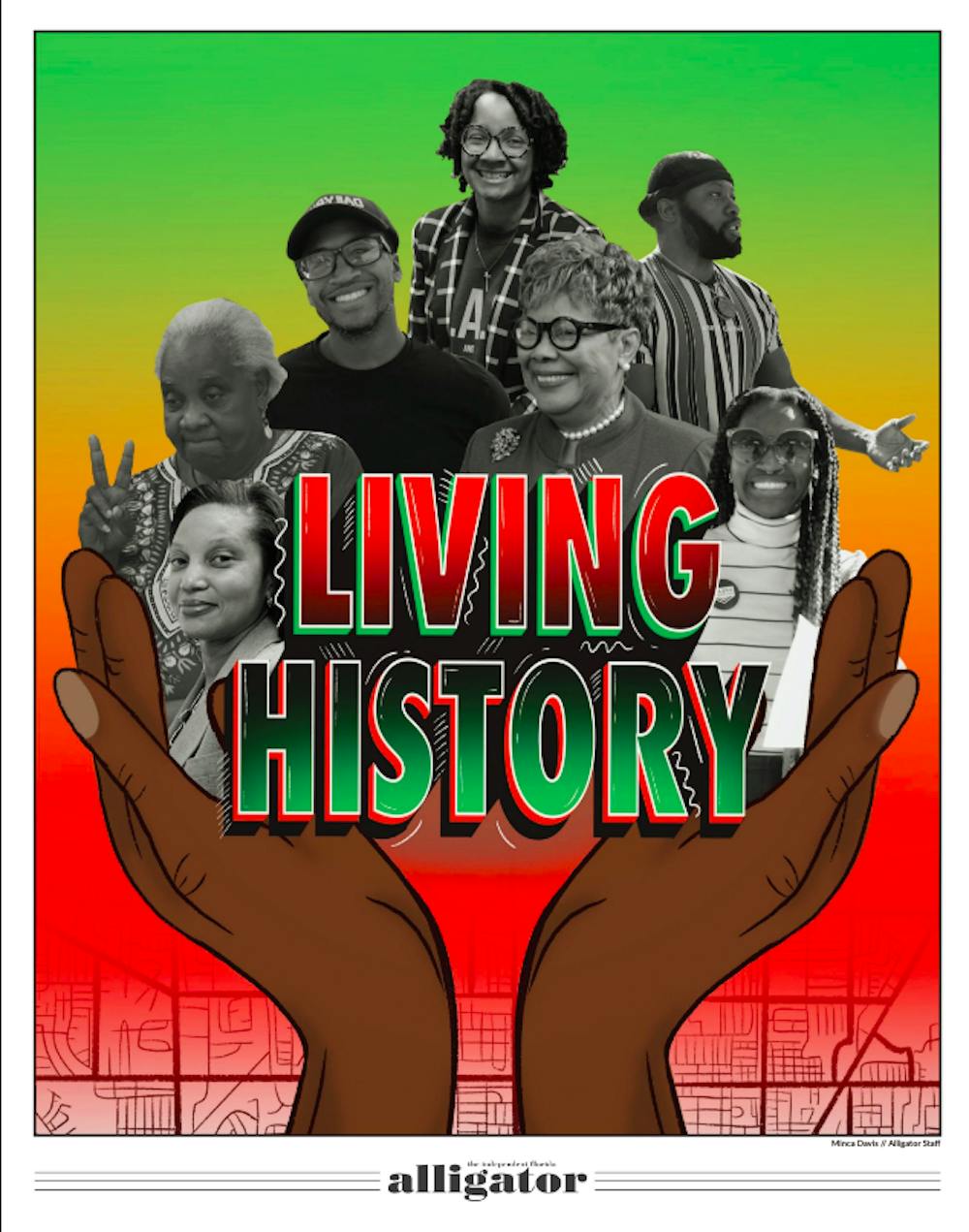Black history is Gainesville history.
Black history is not just the names of dead figures in textbooks. It is not just black and white photos. It is not just regurgitated trauma documentaries of the same three people for 28 days. And it should not be sidelined for the other 337 days of the year.
Black history is alive.
Our city’s Black population has been ignored for years. It is time that we celebrate history as it happens in real time and bring shadowed stories to light.
We took this month to showcase “Living History,” a special project that examines the untold history of those before us and the history occurring on the streets of the city today.
We wanted to share the stories of those who are living through historical events now, as well as those who experienced critical periods like integration.
They are, in a sense, living historical figures.
The oldest living resident of Porter’s Quarters, Janie Williams, 83, spoke with us about the neighborhood she’d known as a child changing in the face of gentrification. We shared her stories about closed businesses, abandoned homes and suddenly unsafe streets.
Gainesville residents who lived through a segregated city shared their stories of discrimination and hardship with us. They showed us the bright parts of their lives, painting a picture of a tight-knit Black community, friendly streets and family farms.
We shared the stories of Black women who were tired of discrimination in the birthing process and decided to do something about it. We talked to teachers who ditched an outdated curriculum and replaced it with lesson plans that featured hidden heroes.
Our city is going through a major demographic shift with the rise of gentrification. UF and its students expand their reach — beyond the campus borders and straight to the heart of many Black neighborhoods.
Gainesville is — as always — living through history.
One of our stories delves into a historic figure at Santa Fe College, Paul Broadie, SFC’s first Black president. Elected two years ago, Broadie had major goals but was handed a pandemic. While making progress on some fronts, Black students have remained a substantial minority on campus.
Some of the subjects of our stories are no longer living.
Neil Butler, Gainesville’s first Black City Commissioner and Mayor, died in 1992. His family holds his often overlooked contribution to local history near their hearts. His daughter, son and niece tell the stories of his bravery as a Black politician during Reconstruction and kindness as a father.
This project is dedicated to the people of living history who shared their stories. Please accept your roses while you’re still here.






